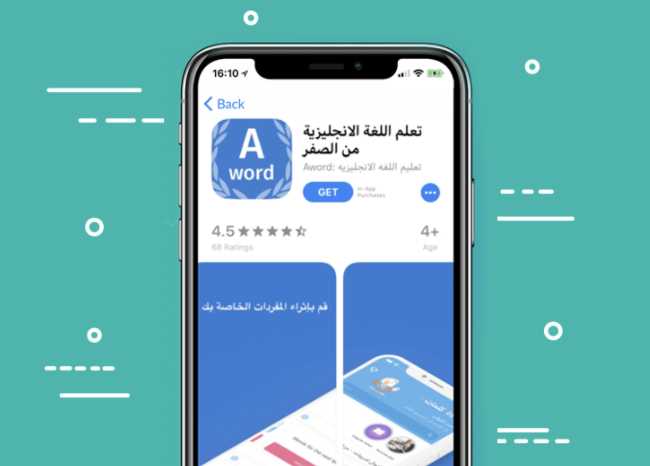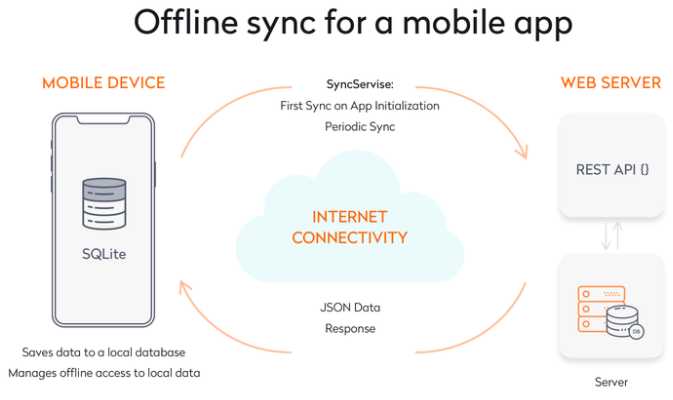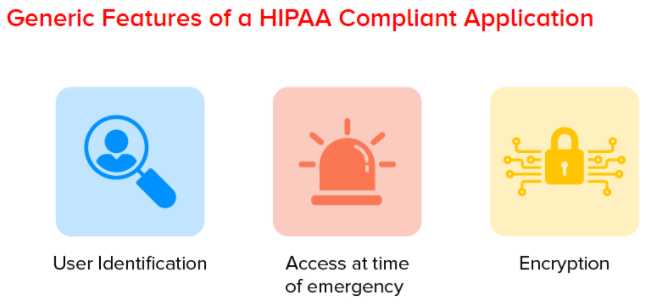Table of Content
The overall prevalence of mobile phones has made them an essential part of our daily lives. With the astronomical amount of attention geared toward the mobile domain, it only makes sense to see the surge in the number of successful apps. However, there has also been significant growth in the number of failed apps over time.
Notwithstanding, despite the increased adoption of smartphones and apps, most mobile phone apps built by professionals typically incur a high cost to bring them to the market. Both in terms of time and money! Furthermore, with the incrementing popularity of mobile apps, there has also been a consequential amplification in the number of available competent software developers worldwide.
 Statista predicts that the global developer population will reach 28.7 million people by 2024. Image Credit: statista.com
Statista predicts that the global developer population will reach 28.7 million people by 2024. Image Credit: statista.com
That being said, how much does it actually cost to make an app? Determining the total costs of a mobile app development project is not a readily deducible task. The purpose of this blog is to uncover the factors that go into costing a mobile app and considerations to make in order to achieve an acceptable baseline estimate when costing a mobile app.
Professional App Costing
Generally, a professional app estimate ought to provide you with a full specification for your mobile product, with a price you can take to the bank. Essentially, a feasible estimate should thoroughly itemize the time requirements while accounting for every feature, function, and design element employed by your app, along with its backend, technology stack, and other special requirements. Before we get ahead of ourselves, let’s first delve into the factors that significantly impact mobile app costing.
Variables That Affect the Cost of an App
1. The Complexity of the Mobile Application
For the most part, the business logic constituted in the mobile app will form the building block of any mobile app, define its architecture, characterize its features and the intricacy of the features. As such, the consequent cost range and scope of a mobile app vary by the business logic contained therein. In the same breadth, the design intricacy of an app also relies on the type of app you want: whether simple, average or complex. Furthermore, the cost of the application you desire also depends upon the number of pages you want in the app.
 Real Racing by EA Sports is an example of a graphics gaming app. Image Credit: ea.com
Real Racing by EA Sports is an example of a graphics gaming app. Image Credit: ea.com
To give more context, when determining the development cost of a gaming app, you have to consider the fact that substantial graphics work might be required. For instance, the creation of 3D effects and the exploitation of built-in mobile peripherals, which could mean a higher cost. On the other hand, a business app that deals with content, database management systems, and high-security features might be cheaper to build. Therefore, designing the different categories of apps necessitates different focus areas, hence multifaceted features that need to be worked on, consequently affecting varied price points for disparate mobile apps.
2. The Type of Platform
Generally, different platforms may command different app costs as operating systems typically differ with devices (case in point, Apple and Android). Principally, native or hybrid application considerations are significant factors when deciding the cost of a mobile app. While cross-platform development can promise to be a great cost saver, this approach is only applicable if your app is not highly complicated, doesn’t employ native interfaces, and doesn’t require hardware integration. Otherwise, cross-platform development might pose performance issues. So, it’s worth critically factoring.
3. Estimated Timeline for App Delivery
Time is money, right? A common saying that is highly applicable in mobile development scenarios. Generally, timelines are a critical key point when making price determinations during mobile app projects.
Essentially, maintaining an inexpensive timeline (with customer inclusion all through the cycle) helps keep the project budget manageable. At the same time, also having sensible and realistic expectations of a project delivery helps avert unnecessary rush charges that might increase the project cost.
4. Multi-language Support
When a mobile app necessitates representation in different languages across disparate regions, its cost will probably surpass the baseline development cost in the market. Part of the price variance will stem from two major aspects: the scope of data and UI adjustments. Essentially, the same version of a translated app could require about 15 extra hours of development time. In practice, in case interfaces require significant readjustment to suit intricate needs (for example, translating to Arabic languages employing RTL/LTR direction in CSS), the cost can climb further.
 Apple launched an All Arabic App Store, posing new opportunities for developers. Image Credit: mobileappdaily.com
Apple launched an All Arabic App Store, posing new opportunities for developers. Image Credit: mobileappdaily.com
5. Mode of Testing
Testing is a typically forgotten constituent in determining app cost. Ultimately, it is imperative to conduct extensive testing before launching an app. However, in some instances, multiple testing exercises might be necessitated to keep the app running, or after instituting amendments as per feedback.
 Types of mobile application testing. Image Credit: sinform.com
Types of mobile application testing. Image Credit: sinform.com
This typically spells an additional cost, which is sometimes unavoidable as it could determine the app’s success rate. In essence, this could mean that the more features you want in your app, the more you’ll have to pay for them.
6. Third-Party Integrations
Another considerable factor that can reduce or increase project costs and delivery time is the integration of a third-party service or web-based API to enable a specific feature in a mobile application. Generally, some functionality within a mobile app might dictate integration with third-party frameworks, SDK, or libraries.
 How APIs provide social authentication services to websites. Image Credit: geeksforgeeks.org
How APIs provide social authentication services to websites. Image Credit: geeksforgeeks.org
For instance, to integrate an electronic payment option into your app, you will need to integrate payment services like Braintree, PayPal, Stripe, etc. Furthermore, introducing social media authentication capabilities into your application might require access to Facebook and Twitter APIs.
7. Employing Hardware Components
Applications that require a form of embedded hardware integration are typically more expensive than conventional apps. For example, a medical app that connects to a pulse oximeter or digital thermometer will typically necessitate connection to inbuilt components like: GPS and Bluetooth sensors. Since hardware components vary, finding the right ones and integrating the app on various devices could increase development time and cost.
 The Airstrip mobile app is an example of a mobile app that extracts data from hardware. Image Credit: Airstrip.com.
The Airstrip mobile app is an example of a mobile app that extracts data from hardware. Image Credit: Airstrip.com.
8. Instituting an Offline Mode
Many mobile apps nowadays are vying for offline-first capabilities. However, achieving this comes at an extra cost. Different offline modes come in various forms and complexities. For instance, in some messaging apps, you can continue to chat history up to the latest messages before losing the connection, while others restrict access altogether to chat history.The different methods of effecting offline data storage and access like local caching, cookies, shared preferences, and local storage, may spell additional costs. Most of this incurred cost comes when determining groups of data and rules for them, requiring 40 hours of extra development time.
 How offline implementations work. Image Credit: yalantis.com
How offline implementations work. Image Credit: yalantis.com
9. Security Features
An app that requires enterprise-grade security will most likely cost more than a basic gaming app. such an app could be a banking app or a hospital app that requires HIPAA level security compliance. Building highly secure features might entail employing sophisticated tools to help identify potential vulnerabilities, which, in turn, could spell a higher development cost.
In summary, when considering the cost of making an app, evaluate the intricacy of the design requirements, the number of features and integrations, the number of distinct user groups, the business logic, potential geographic considerations, and sophistication of the subject matter. Furthermore, from a product adoption viewpoint, it’s crucial to investigate the effort that goes into the testing and planning to ensure an appropriate adoption experience. Lastly, carefully consider whether to take the route of a full native or a hybrid approach as it makes a notable difference.
How Long Does It Take to Develop a Mobile Application?
The process of constructing an app consists of several consecutive stages, namely: planning, design, development, testing, deployment. That being said, the timeline for each of these stages can vary based on the complexity and individual features of the app. However, most development agencies typically use the following template (for best-case scenarios):
- Free quotation/price estimate (1-3 days)
- Detailed investigation of the problem, extensive analysis of the market and competitors (1-5 days)
- Wireframe Prototyping and technical documentation (5-15 days)
- Application Design (5-15 days)
- Software Programming (18-60 + days)
- Software Testing (5-10 days)
How to Get a Good Budget Estimate for the Cost of an App
According to the Clutch Survey, the average cost to build an app by well-established agencies is $170,450 (up to $250/hour). Furthermore, multiple online App Cost Calculators can be employed to get an approximate cost price of between $200,000 to $350,000 for highly complex apps. On the other hand, smaller apps with regular features cost between $10,000 to $50,000.
Generally, the first factor to consider if you’re outsourcing development is the geography the app will be operating in and the location of the development agency. This springs the question of offshore development benefits, which have become more evident with the multiple available development tools like project management tools, time-tracking platforms, CI/CD tools, and communication tools.
For more context, a team of freelancers in India or Ukraine might charge around $35-$40 per hour based on their location and team size, while a team in the USA might charge up to $100 per hour. A student or a friend who will probably work much slower and be inexperienced might cost you $20/hour, but potential re-works later. Hence, a higher cost in the long term.
What to Pay Attention to When Choosing Developers.
- Whether they follow a process-oriented approach during development.
- Whether they gather input and information from the users through and have clear research patterns. Essentially, treating user questions and comments as high-valuable unpaid consulting opinions.
- Whether they employ industry-standard tools during app development.
- Whether they use well-known testing protocols and tools, and spend a sufficient amount of time testing the apps with respect to security and performance.
- Whether they integrate user feedback into subsequent versions of the app to eliminate bugs or non-obvious blocks to sustained usage.
Costs for After-Development
Unfortunately, expenses do not end after final development, just the end of that chapter. App maintenance is another cost that requires budgeting and forecasting. Several issues may pop up after getting a few hundred thousand downloads, or iterative changes might be necessary.
So, to attend to this, it’s important to negotiate a standard maintenance rate with your developers to ensure you can quickly institute updates. In the end, you’d want your users to keep using your app as often as possible, right? That being said, for representational purposes, as a rule of thumb, the average cost of maintaining a mobile app is typically 20% of the initial development cost per year.
Final Reflections
All things considered, to obtain success in the mobile ecosystem, merely developing an app is not enough. You will have to embrace innovative procedures and trends as new technologies are emerging daily. As such, these trends and technologies can also affect the cost of development but also give you a competitive edge that could prove financially beneficial later.
As has been noted, the cost to make an app is principally determined by the design’s intricacy, the number of hours that go into achieving each feature, and the number of operating systems. With these factors in mind, you can always derive a fair estimate for your app, preventing under-budgeting or over-budgeting.



